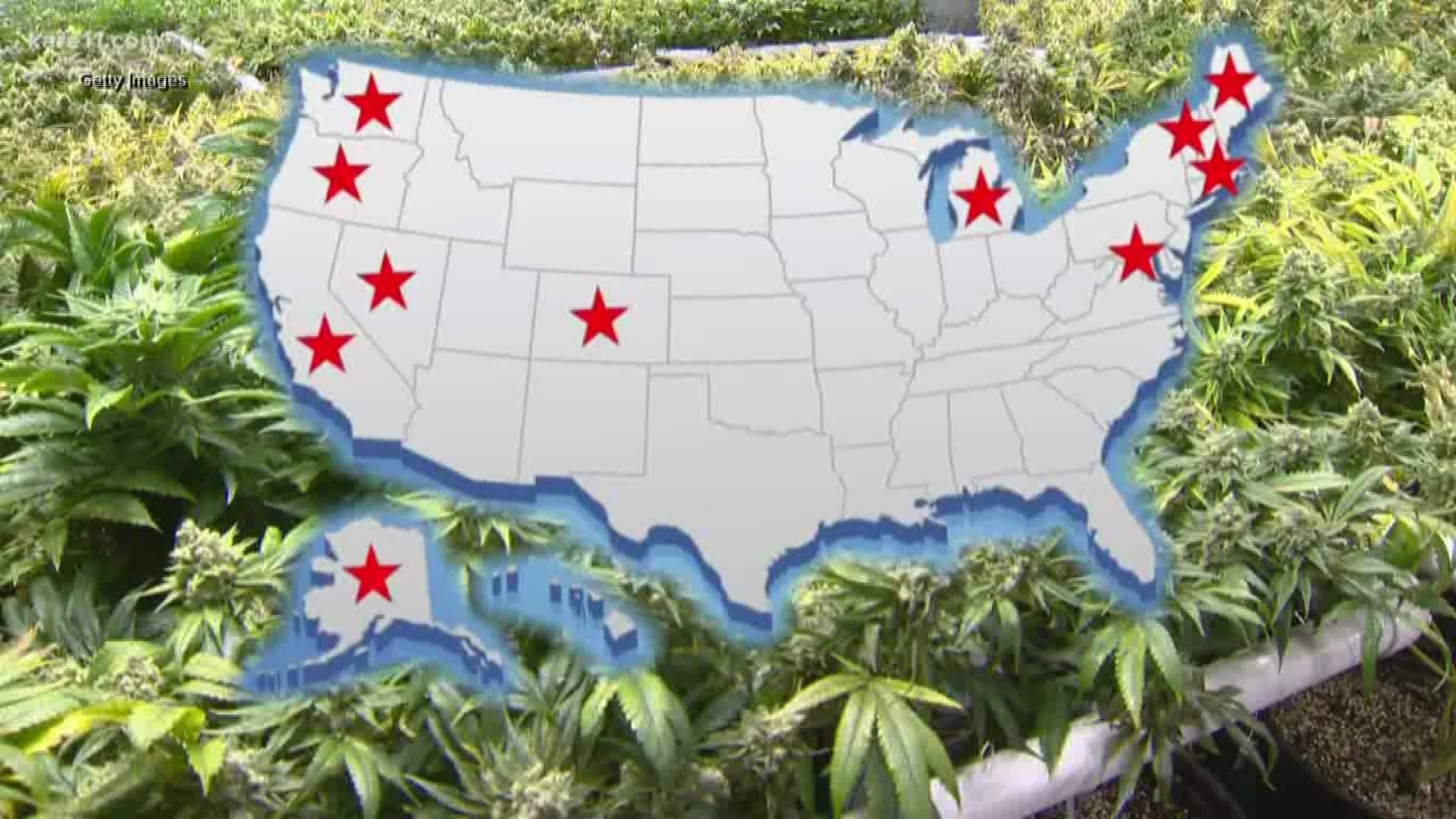The debate over legalizing recreational marijuana in Minnesota has never been hotter, as some lawmakers believe it's no longer a matter of if, but when.
Three bills aimed at legalizing recreational marijuana have been introduced in the Minnesota state legislature so far this session.
Currently, 10 states, Washington D.C. and Canada allow recreational marijuana sales and consumption despite the drug still being labeled illegal federally.
“I feel like at a certain point it's going to happen in Minnesota, whether we are ready or not,” said State Representative Mike Freiberg, DFL-Golden Valley.
Freiberg says he has no personal interest in legalizing the drug, but with a background in public health policy, he wanted to offer certain safeguards by authoring bill HF 420.
RELATED: Read more on HF 420 here
“I sort of felt like if I were to get involved in this issue I can introduce some legislation that has some strong public health protections in places so cannabis doesn't become another big tobacco where it has essentially been marketed towards kids,” said Freiberg.
His proposal:
- The buying age of marijuana would be 21
- Public consumption would not be allowed
- The regulation of sale, marketing and manufacturing of marijuana would run through the state Department of Health, just like the medical cannabis industry today
- Residents would be able to grow up to four of their own plants, with a license
- Every municipality in the state would have say over how many retailers could operate. Cities could opt out of allowing retailers
Two out of three Americans support the legalization of marijuana, according to a recent Gallup poll, but what do Minnesota's lawmakers say about it?
KARE 11 asked all 201 state representatives and senators if they think cannabis should be recreationally legal in Minnesota. Forty-eight lawmakers took our anonymous survey -- 18 said yes, 17 said no, and 13 replied they weren't sure yet.
Freiberg says a lot of the proposal would be subject to debate in the legislature, including taxation rates. But his biggest fear is making cannabis more accessible to kids.
If you turn to Colorado, the first state to legalize the drug for recreational use in 2012, the state’s latest biennial report on the impact of marijuana legalization shows the number of high schoolers trying marijuana in their lifetime has dropped after legalization.
The Healthy Kids Colorado Survey, which includes data from 53,800 students, shows lifetime marijuana use of high schoolers dropped from 42.4 percent in 2005 to 35.2 percent in 2017.
High school students who reported using marijuana in the past 30 days also dropped from 22.7 percent in 2005 to 19.4 percent in 2017, according to the report.
However, in Washington state, also legal since 2012, the number of high schoolers who report using the drug regularly hit the highest mark since 2002, according to a department of health report.
Another common concern regarding legalization is the impact of marijuana on the roads.
In Denver and its suburb Aurora, the number of DUIs involving marijuana doubled from 2013 to 2017, according to the state’s report. The number of deaths in crashes involving drivers who have tested positive for cannabinoids have gone up in virtually all categories over the last available four years. While testing positive for cannabinoids indicates recent marijuana use, it does not prove a driver was high at the time of the crash.
More from KARE 11

